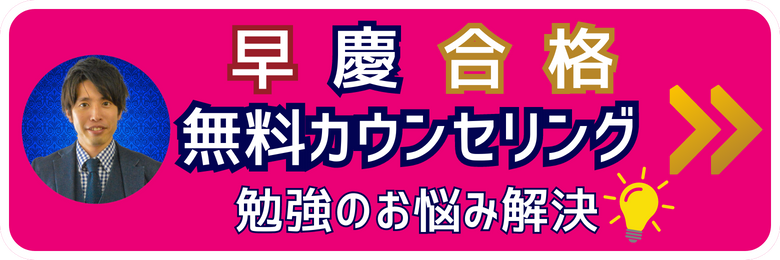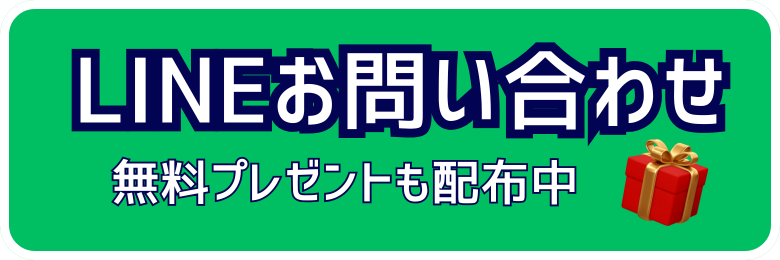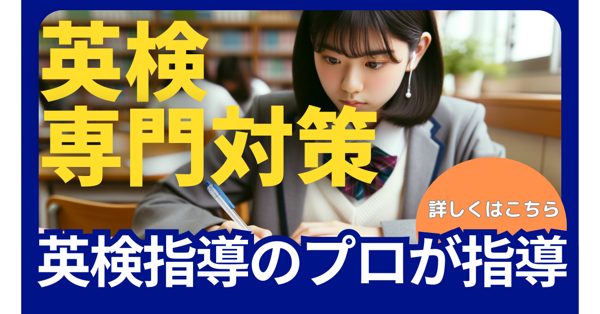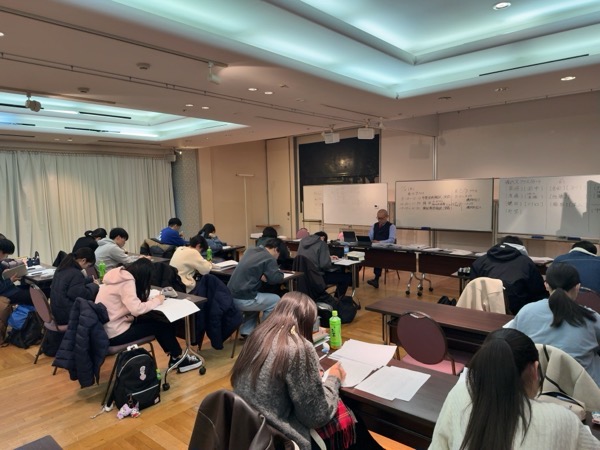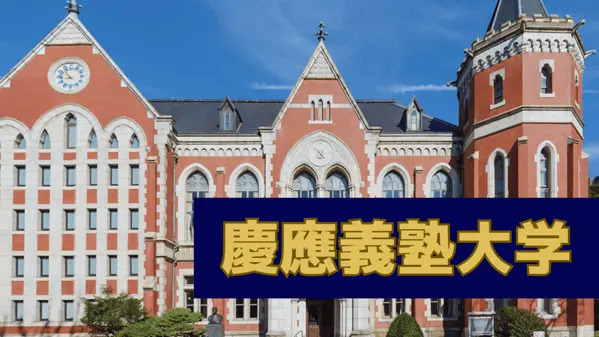英検2級合格を目指すあなたに朗報です。わずか1ヶ月で合格できる特効勉強法があります。 英検2級には、リーディング、ライティング、リスニングと4技能があります。 しかし、すべてに時間をかける必要はありません。得意分野に集中し、他は合格ラインに達することを目指せば十分合格できます。 本記事では、この「得
- …続きを読む
- 英検2級合格を目指すあなたに朗報です。わずか1ヶ月で合格できる特効勉強法があります。
英検2級には、リーディング、ライティング、リスニングと4技能があります。しかし、すべてに時間をかける必要はありません。得意分野に集中し、他は合格ラインに達することを目指せば十分合格できます。
本記事では、この「得意分野に特化する勉強法」を詳しく解説します。辛抱強く勉強してきたあなたを、最短距離で英検2級合格へ導きます。ぜひ参考にしてください。
[toc]英検2級について
まずは英検2級がどのような試験なのかついて簡単に確認していきます。
ここでは、下記3点について確認していきます。- レベルと難易度
- 試験概要
- 合格点と合格率
英検2級のレベルと難易度
英検2級のレベルは「高校卒業程度」と位置付けられています。
高校卒業レベルの文法事項が出題され、語彙数は約5,000語が要求されるレベルです。具体的には、英検準2級までに習得した英語力を、実社会でも使える実用的な英語力へと発展させることが求められます。
日常会話文からより複雑な内容の文章への対応力が問われるようになります。リスニングの速度も準2級より速くなるため、音声への慣れが必要となります。
英検2級の試験概要
英検2級の試験は、一次試験と二次試験からなります。
一次試験は、リーディング、ライティング、リスニングの3技能が出題される紙筆テストです。
所要時間は筆記試験が85分、リスニングテストが約25分です。
二次試験は、面接官との英語による面接試験で、スピーキング能力が評価されます。
試験時間は約7分です。それぞれについてこちらで記載しています。
[nlink url="https://hiroacademia.jpn.com/blog/kentei/eigokentei/grade2/eiken-2/"]英検2級の合格点と合格率
英検2級の一次試験の合格点は1,520点(満点1,950点)、二次試験は460点(満点650点)です。
合格率は近年公表されていませんが、過去のデータから25%前後とされています。難関な資格ではありますが、しっかりした対策を行えば、合格できる可能性は十分にあります。
英検2級に1ヶ月で合格する勉強計画
それではここから具体的に英検2級に1ヶ月で合格するための勉強計画を見ていきます。
英検2級に合格という目標だけにしぼれば合格は難しくありません。

1ヶ月で最優先事項は?
英検2級を短期間で取るために最優先事項は英単語と作文です。
この2技能は比較的短期間で鍛え上げることができるため、
この2つを極めることで合格レベルまで持っていくことができます。優先[単語>>>>英作文>>長文]- 英単語と長文は一問一点なので、単語がわからないという人は長文よりも単語を優先してください。長文は点数が悪くても受かります。
- 英作文が1技能で点数がつき、かつ対策も立てやすいのでここで点数を取れるようにしてくのが一番良いでしょう。
大学受験では、長文の方がもちろん配点が高いので、たとえ合格してもその後に長文の勉強をしてください。
1ヶ月スケジュール
英検2級合格を目指す1ヶ月の具体的なスケジュールは以下の通りです。
1週目:英単語と熟語の学習・文章を読む
「パス単」を使用し、毎日決められた量をこなす。
『英検分野別ターゲット英検2級単語・熟語問題』も余裕があれば覚えてください。2週目:基本的な文法事項の復習と作文・リスニング過去問
動詞の活用、冠詞、助動詞などの基礎的な文法項目を確認する。
過去問題で弱点があれば注意して復習する。3週目:読解の過去問題を解き知識の定着
過去問題集を解き、文章内容の理解力や正確な解答力を養う。分からない問題は必ず復習する。
4週目:これまでの復習
過去問をもう一度解いて、単語、作文でどんな問題が出ても対応できるようにしてください。1週間の具体的な計画
1週間の具体的な勉強計画の例は以下の通りです。
1週間計:24時間の勉強時間
- 平日:午後8時から10時まで勉強(2時間/日×5日間=10時間)
- 土日:午前9時から午後5時まで勉強(2日間で14時間)
平日は仕事や学校があるため深夜に勉強時間を確保。
休日に集中して長時間勉強をすることで、1週間で20~30時間の学習時間を持続できます。勉強時間の確保方法
勉強時間を確保するコツは以下の通りです。
- 通学・通勤時間でスマホを使って勉強する
- 食事時間を短縮してその分勉強時間に振り向ける
- 趣味のテレビやゲームを控え、その時間を勉強に充てる
- 家事をシンプルに済ませ、手間のかかる料理は控える
英検2級 必須の勉強法とおすすめ参考書
ここからは各技能をどのような点を意識して学習をしたら良いのか?、勉強法や
おすすめの参考書をお伝えしていきます。英単語の勉強法と意味で覚えるコツ
英単語の勉強では、単語帳を活用し、毎日20-30語ずつ復習することをおすすめします。
新しい単語を少しずつでもコツコツ学習することが大切です。
発音記号も必ず確認し、実際に声に出して言うことで記憶に残りやすくなります。
単語の意味は、和訳だけでなく、例文や英語での説明文でも理解を深めましょう。
視覚的なイメージを手がかりにするため、単語の画像カードを自作するのも効果的です。
頻出する重要単語は、単語帳で色分けしたり位置を変えたりすることで、復習時に強調して学習できます。
このように、学習法を工夫することで、効率的に単語力を高めることができます。単語帳は、『パス単』と『英検分野別ターゲット英検2級単語・熟語問題』をひたすらおこなってください。
[itemlink post_id="23415"] [itemlink post_id="23417"]余裕ある人は『文で覚える単熟語』をやってみてください。
[itemlink post_id="23418"]2級の英単語の覚え方はこちらの記事でも解説しています。
[nlink url="https://hiroacademia.jpn.com/blog/kentei/eigokentei/grade2/eiken-word-howtostudy/"]熟語と会話表現の暗記法
熟語を暗記する時は、その熟語が実際に文章の中でどのような場面で使われるのかをイメージしながら学習しましょう。
熟語が使われる場面を思い浮かべることで、その熟語の意味と使い方を理解しやすくなります。例えば、「get up」は「起きる」という場面、「look after」は「面倒を見る」という場面をイメージします。
このように、熟語の意味を単に訳すのではなく、それが使われる実際の状況を頭に浮かべることで、熟語のニュアンスまで理解しやすくなります。会話表現は、実際にその場面で使えるようになることが大切です。
例えば、「Nice to meet you.」は初対面の人に挨拶する場面、「Could you repeat that?」は聞き返す場面などを想定します。
このように、熟語も会話表現も覚える際は、単に訳だけでなく使用場面を意識することがポイントです。
そのためには、会話表現を繰り返し音読したり、シャドーイングすることが効果的です。また、ノートに新しく習った熟語や会話表現を毎日5つずつ書き写すのも覚えるコツの一つです。
同じ種類の熟語はまとめて学習すると効率的です。
熟語を暗記する時は、その熟語が実際に文章の中でどのような場面で使われるのかをイメージしながら学習しましょう。文法の効率的な勉強方法
文法の学習は基礎から応用までを段階的に進めましょう。
基本は過去問を解いて『大岩の英文法』などのわかりやすい英文法の教材を使って確認するのが良いでしょう。
長文読解の読み方と速読法
時間のない人は単語だけでOKで、作文を優先してください。
長文読解では、まず文章の構成を把握します。
例えば以下の英文の場合、「はじめにスマートフォンの普及について──次に依存症の現状──そして最後に解決法の提案」といった流れになっています。
In recent years, smartphones have become an essential part of our lives. Over 70% of people now own one. However, overuse of smartphones can lead to addiction. According to a survey, 20% of smartphone users check their phones more than 50 times a day. This dependence on smartphones is becoming a serious social issue. Experts suggest that users should track their usage time and limit it. Also, they recommend turning off notifications and avoiding use before bedtime. With proper management, we can use smartphones wisely.次に段落ごとに要点をまとめていきます。第一段落は「スマートフォンの普及」、第二段落は「依存症の実態」、第三段落は「解決法の提案」と、各段落のテーマをつかみます。
このように、英文の構成と段落の役割を理解することが基本的な読み方となります。速読力は、この読み方を身につけるとともに、英文を音読する訓練で鍛えられます。
通勤電車で英文の音読をするなど、実践を重ねることが重要です。
[itemlink post_id="23419"]
参考書では、『英検2級 長文読解問題集』(旺文社)がオススメです。多数の長文読解問題を解くことで、読解力と速読力が向上します。このように読み方を意識し、実践を積むことで長文読解力が確実に高まります。
リスニングの耳を鍛える方法
どれくらい勉強時間を取れるかによります。
1ヶ月だとコスパがあまり良くないので後回しが基本。ちゃんと聞こえるようになるには3,4ヶ月は少なくてもかかります。リスニング力を高めるには、まず毎日15-20分は英語の音声教材を聞く習慣をつけることが大切です。
継続的に英語を聞くことで、自然と聞き取り能力が向上します。過去問を使って音読やシャドーウィングをやってみましょう。

こうしたインプットとアウトプットをバランスよく行うことが、リスニング力アップの近道です。
シャドーウィングって何?という人はこちらの記事で詳しく説明しています。
[nlink url="https://hiroacademia.jpn.com/blog/kentei/eigokentei/eiken-listening-effective/"]ライティングの得点を稼ぐコツ
最優先!テンプレートに当てはめて何度も書くことで点数を稼ぐことができます。
ライティングで点数を取るには、まず問題文のキーワードを確認し、自分の意見をまとめることが大切です。
理由は2つ考えて説得力を高めましょう。
データや具体例を用いるとさらに説得力が増します。定型の構成(意見→理由1→理由2…)も点数アップにつながります。例えば、以下のような問題の場合、キーワードは「スマートフォン」「依存症」「規制」です。
Should the excessive use of smartphones be regulated?
次に、これらのキーワードを使って自分の意見を明確にまとめます。
I agree that the excessive use of smartphones should be regulated.
その後、理由を2つ以上示します。データや事例を用いることで説得力が増します。
First, 20% of people check phones more than 50 times a day, which leads to addiction. Second, smartphone overuse is related to sleep disorders and depression according to research.最後に定型の構成として、意見と理由をまとめて文章を終えます。
For these reasons, I believe smartphone overuse needs to be addressed by regulations.使える単語や熟語を意識的に取り入れることもポイント。最後に文法やスペルのチェックを怠らないことが合格への近道です。これらのポイントを押さえることで高得点が狙えます。
このようにキーワードの確認、意見の明確化、理由の説明、定型構成を使うことがライティングの得点アップにつながります。
もう少し詳しく英検2級のライティングについてこちらの記事で記載しています。
英語検定2級ライティング楽して一発合格するためのテンプレ公開
英検2級ライティング 練習問題3題1
英検2級ライティング 練習問題3題2
英検2級ライティング 練習問題4題英検2級の過去問題を活用する
英検2級最短で合格するためには過去問の使い方がものすごく重要です。
[itemlink post_id="23420"]
過去問をどのように使うかで合格するかしないかがかかっているので、しっかりとやりこんでください。
過去問の解き方とポイント
過去問題を解く際は、まず時間を計って解答することが大切です。
実際の試験と同じ時間制限で解くことで、時間配分の感覚が身につきます。
過去問には模範解答が用意されているので、自分の解答と比較し、得点差が生じるポイントを洗い出しましょう。
模範解答の解き方も参考になります。復習では答え合わせが重要
過去問題を解説を読んで終わりにするのはもったいません。必ず「答え合わせ」を行うことがポイントです。分からなかった単語や文法事項を徹底的に調べ直し、知識を定着させることが大切です。リスニングも音声を繰り返し聞き、完全に文本文が聞き取れるように復習しましょう。
単語問題やリスニング問題は繰り返しが重要
同じ問題が出題されることもありますので何度も行って、やりこむようにしてください。単語は問題を解くことで定着していきます。
過去問を解く頻度と回数
過去問は、最初は週に1回ずつ解き、徐々に頻度をあげていくと効果的です。
試験直前には毎日解くことをおすすめします。
合計で過去6回分は最低2周、できれば3周するのが理想的です。
繰り返し解くことで、傾向をつかみやすくなります。面接スピーキング対策で合格を確実にする
英検の面接、スピーキングの対策についてここから記載していきます。
SCBTなのか、会場形式なのかによって準備期間が異なります。
スピーキング対策は単純です。
英検2級面接合格のカギは、英語での応答力にかかっています。
特に面接官の質問に対して最後まで黙ることなく流暢に応えられるかが大切です。極端な例でいうと、、
面接官「What is your name?」
生徒「My name is…」
生徒「…」(答えられずに黙ってしまう)このように面接で詰まって沈黙してしまうと、瞬時に採点が下がってしまいます。
事前の練習でスムーズに応答できるようにしておくことが合格への近道です。2
英語で最後まで会話を続けられる実戦力が求められます。
またいろいろと問題はありますが、最初の3コマ漫画の対策が最も重要です。

英検2級の1ヶ月対策は独学で可能か
結論から言えば、独学でも2級レベルは十分に合格可能です。
ただし英検専門のスクールを使った方がモチベーションを保って、
効果的に効率的に合格することは可能です。塾やスクールの活用方法
1ヶ月という短期間で合格を目指す場合、塾やスクールを活用するのが効果的です。
教師のアドバイスを受けながら計画的に学習できます。
合格実績のある塾であれば、限られた時間の中で指導ノウハウが活きます。もちろん、当塾でも英検専門の対策を行っています。
詳しくは下記にてご覧ください。独学の場合の注意点
独学で対策する場合は、学習計画を立て、進捗管理を徹底することが肝心です。
勉強時間の確保も必須で、平日の睡眠時間を削ってでも時間を割く覚悟が必要です。
添削指導が受けられないため、答案の傾向分析や弱点克服が難しい点にも留意が必要です。
時間と気持ちに余裕があるなら独学も可能ですが、
余裕がない場合は指導力の高い塾の活用が现実的といえます。
体調管理にも気を付けながら頑張りましょう。まとめ
英検2級に1ヶ月で合格するには、限られた時間の中で効率的に勉強する必要があります。
基礎的な英語力があれば独学でも可能ですが、学習計画の立案と管理が欠かせません。
英単語、熟語、文法事項の習得から、過去問題を用いた演習、そして面接対策まで、バランスよく取り組むことが大切です。
特に力を入れたいのは、得点源となる単語とライティングです。
単語と作文力が高いレベルに達していれば、リスニングがやや苦手でも合格できる可能性が高くなります。
過去問題は繰り返し解き、得点力を高めることが肝心です。
時間に余裕がない場合は、塾やスクールの活用も検討しましょう。
限られた期間で効率よく勉強し、英検2級に合格を掴み取りましょう。



